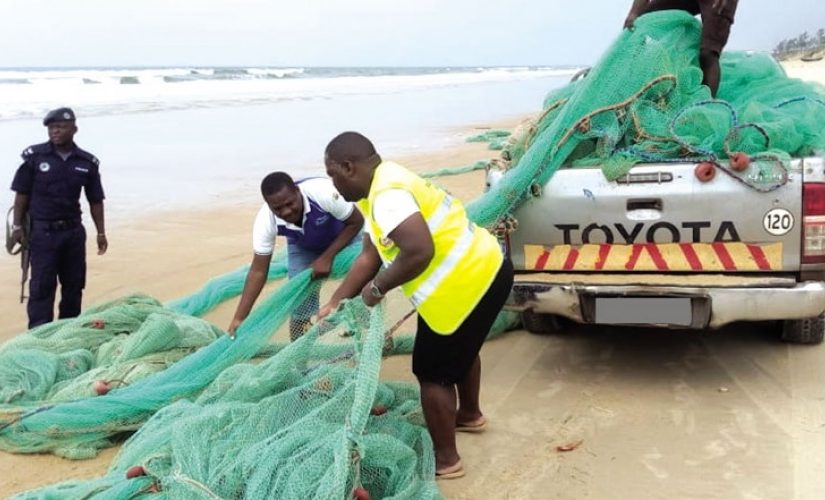Mitsui willing to boost investment in Mozambique
illegally caught shrimp and crab: Six tonnes seized – Mozambique

Photo: Domingo
Artisanal vessels, some built only out of logs, were used to illegally capture more than six tons of shrimp and crab in December and January, when fishing for these species is prohibited, an official source said yesterday.
“Artisanal fishermen are the worst violators in the closed period [when catch is interdicted],” National Director of Operations for the Ministry of the Sea, Interior Waters and Fisheries Leonid Santana said.
The six tonnes represent only the quantities confiscated by the fisheries inspection teams, and would in fact correspond to only part of the actual illegal catch, he added.
The ban on shrimp and crab for artisanal fishing started on 1 December and ends on 31 March, but many fishermen disregard it, and fish in the open sea at night.
“They go out at night to escape the inspectors’ action and dock at any corner of the coastal zone,” Santana explained.
While industrial vessels have automatic location devices and are required to have documentation that authorises fishing, artisanal vessels, by contrast, are usually precarious, and sometimes made only out of tree trunks. This makes control difficult, the official said.
In addition to inspecting the seas, the Ministry of the Sea, Interior Waters and Fisheries has started carrying out night surveillance and inspecting fishing centres, markets and airports to ensure that there is no traffic in the temporarily prohibited species.
Those who had stock of these species at the time the interdiction came into force must be able to present a verification certificate detailing the quantity and time of catch.
The ban on shrimp and crab fishing in Mozambique corresponds to the period in which the species reproduce, and so assists in sustaining stocks.












Leave a Reply
Be the First to Comment!
You must be logged in to post a comment.
You must be logged in to post a comment.